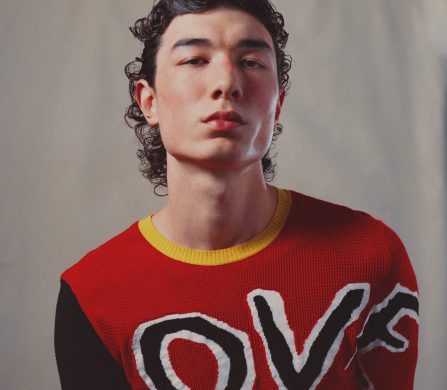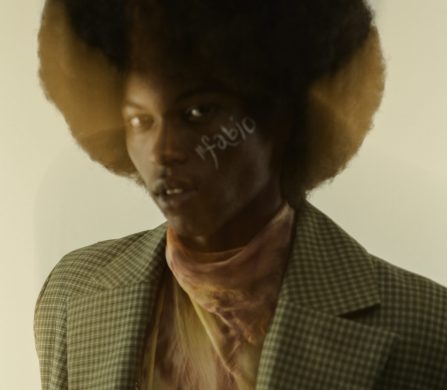Since mid-March, the Drag world has highly been affected by the restriction of gatherings and events caused by the global pandemic. How is the Parisian Drag scene coping with this crisis? Social media have always been a fundamental tool for those artists. With social distancing rules, Drag is more visible than ever on online platforms. We noticed a general support so that this art does not fade away. With all these new restrictions, Drag Queens must breathe new life into their art. Below, filmmaker Ines Ferhat catches up with some artists to know how the pandemic affected their art.
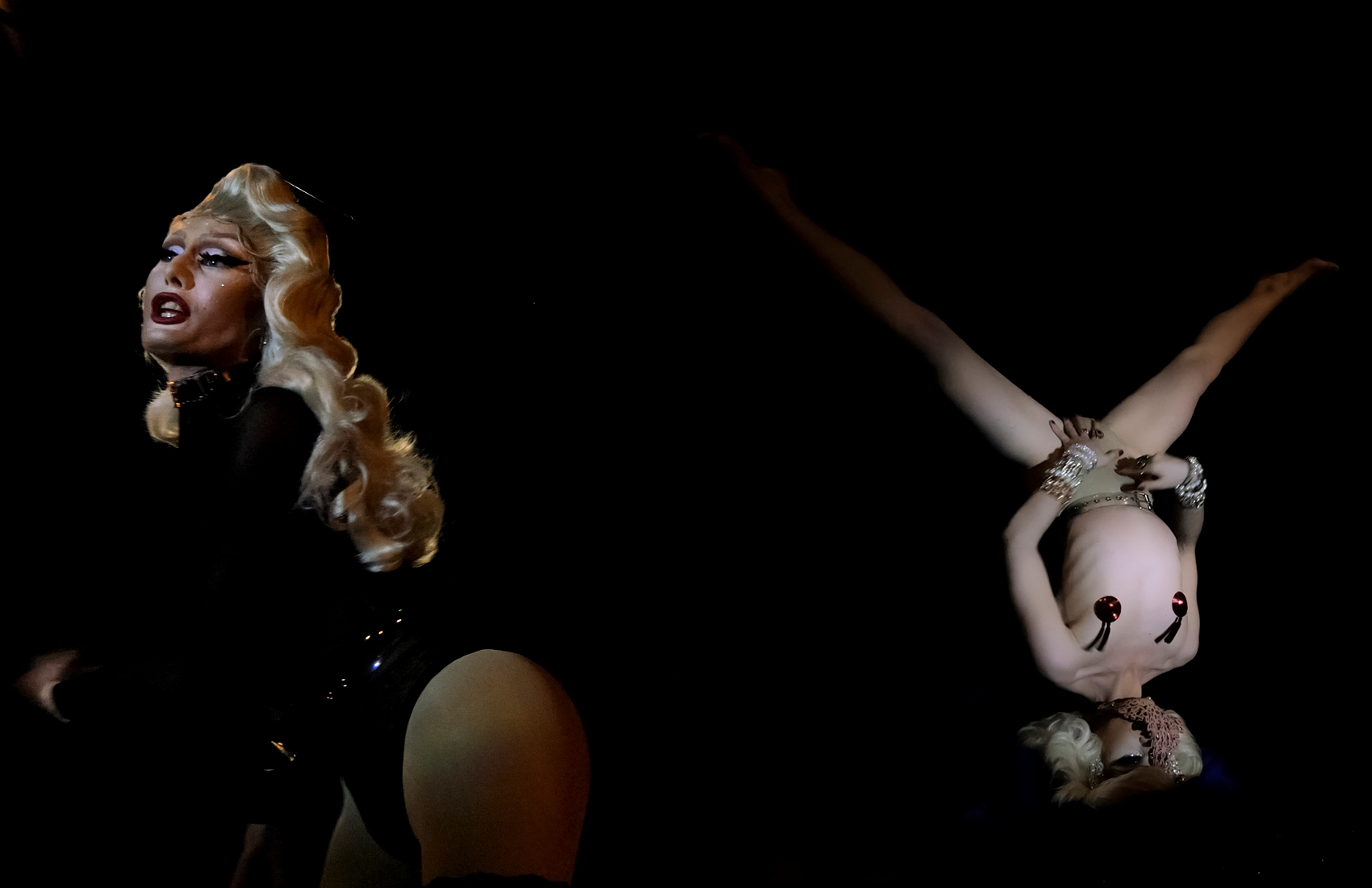
INTERVIEW SASHA KILLS
As an artist, what impact did the pandemic have on your life?
I experienced this pandemic as something that encouraged me to develop my art and to connect to people all over the world. But it was also a psychologically lonesome experience.
Since it was impossible to perform in bars and clubs, did you manage to express your art in any way?
I moved to Berlin a little bit before lockdown and as soon as it happened, I immediately created an Instagram account called “la Queerantine” that broadcasts online performances of international artists. This platform gave them the opportunity to keep performing their art. In Paris, we have seen dematerialised shows like the “Oui oui baguette show”. There have been four editions, one of which I took part in. Obviously, on the other hand, many artists have struggled to adapt to this situation and haven’t been able to create anything.
Did you renew your Art?
I found this new approach to performing very inspiring, it really allowed me to focus on my shows’ artistic direction. It really made me feel more comfortable in my art, which is a full art. I create a universe, a character, a setting, a costume, I work on the sound… During this time, I have seen shows more creative than ever and better performances on the conceptual level. A lot of drag artists have learned to work with special effects, inlaid screens… They would not have thought of these tools for club performances.
What measures did you take to keep performing while respecting social distancing?
Online shows were a way to respect social distancing. In Berlin, now that lockdown is over, we started to organise live shows while making the wearing of masks mandatory and limiting the number of people. It is also the case in Paris, for example with Veronika Von Lear, who is back on stage.
How did your audience react? Do you have any new support?
The audience was already very active on social media before everything happened. Because it is a very young and connected audience. But online shows really brought people from all over the world. It gave us the opportunity to reach more people. There was a general support between all the drag scenes with each other. In Berlin, whenever a Drag artist needed some help, the community was there.
Did you manage to generate income from your art during the pandemic situation? Is the donation system working?
I didn’t get any financial support neither from the French government nor from the German State since I just got here. I managed to survive the first three months with donations for my shows. It was… Very touching and rewarding to be able to make a living from my art. But I honestly don’t think it would have been possible in France. After the first three months, the public was less and less interested. There was an increase of live shows and fans were excessively requested for donations and attention. So now it’s difficult to generate revenue every month with only producing online shows.
With the “end of lockdown” and the proliferation of online shows, the audience can run out of interest. How do you maintain it?
The mistake of some artists was to tell themselves ‘I’m going to perform as if I was in a club, film it and share it’. If they wanted it to work, they would have had to create a concept taking into account these new online platforms. It is important to remember that in this pandemic context, the Queer community was the first one to have brought live performances. Twitch became an online platform for these shows and we are the forerunners of that phenomenon. Even though the public interest has faded, I think that online shows are still absolutely necessary because let’s not forget that there are many countries where lockdown is still is very radical… It’s always important to connect to the people who are going through this.
What do you miss the most about Drag events?
As a performer, what I miss the most is interacting with my audience. Having people commenting on your online performance is not the same as actually seeing the public’s reaction in real life.
Do you think the Parisian Drag scene will survive this crisis? What future for all these Drag Artists?
This art progressed through the decades and is still inherently disruptive. It used to be banned in the United States, the police would come and arrest Drag artists, the Ballroom shows were illegal. But this scene survived all that. It’s not a scene that needs to be saved because no matter what it goes through, it will survive. I think there will be an explosion of new Drag artists after the pandemic because a lot of people have made their first steps on social media during lockdown. Usually, they would have never dared to perform in bars and clubs. I think we will get to see more creative work in the future because the lockdown situation allowed us all to experiment and discover new things. We’re going to have a Drag scene much more into multimedia and more into experimental work.
The Drag World has been very involved in the Black Lives Matter movement lately. Why is it so important for your community to support such a cause?
We obviously support the Black lives Matters cause because we are fighting the same struggles. As an ethnic minority person, I am always confronted with racism whether it is in my everyday life or in my drag. It’s a must to support such a cause because if we have our rights today as LGBTQ people, it’s thanks to the Black community. Drag is inherently politically active, so we have to be. I used all of my social network to serve this cause with shows to collect donations that directly go to the organisations and associations involved. That’s what we have to do as drag artists: connect the artistic with politics.
What can be the role of Drag in this global pandemic situation?
In this crisis situation, I think it is important to give people hope, entertain them but also give them a platform where they can share and discuss.
Do you have any upcoming projects planned for the long haul?
Having recently moved to Berlin, I would like to start producing events as I did in Paris. I would like to keep bringing a political dimension by organizing reflection discussions on strong topics as racism in the queer scene. Authentic, engaged community talks that can help us understand and move forward. That’s what I was already doing in Paris, now I want to do the same thing in Berlin.
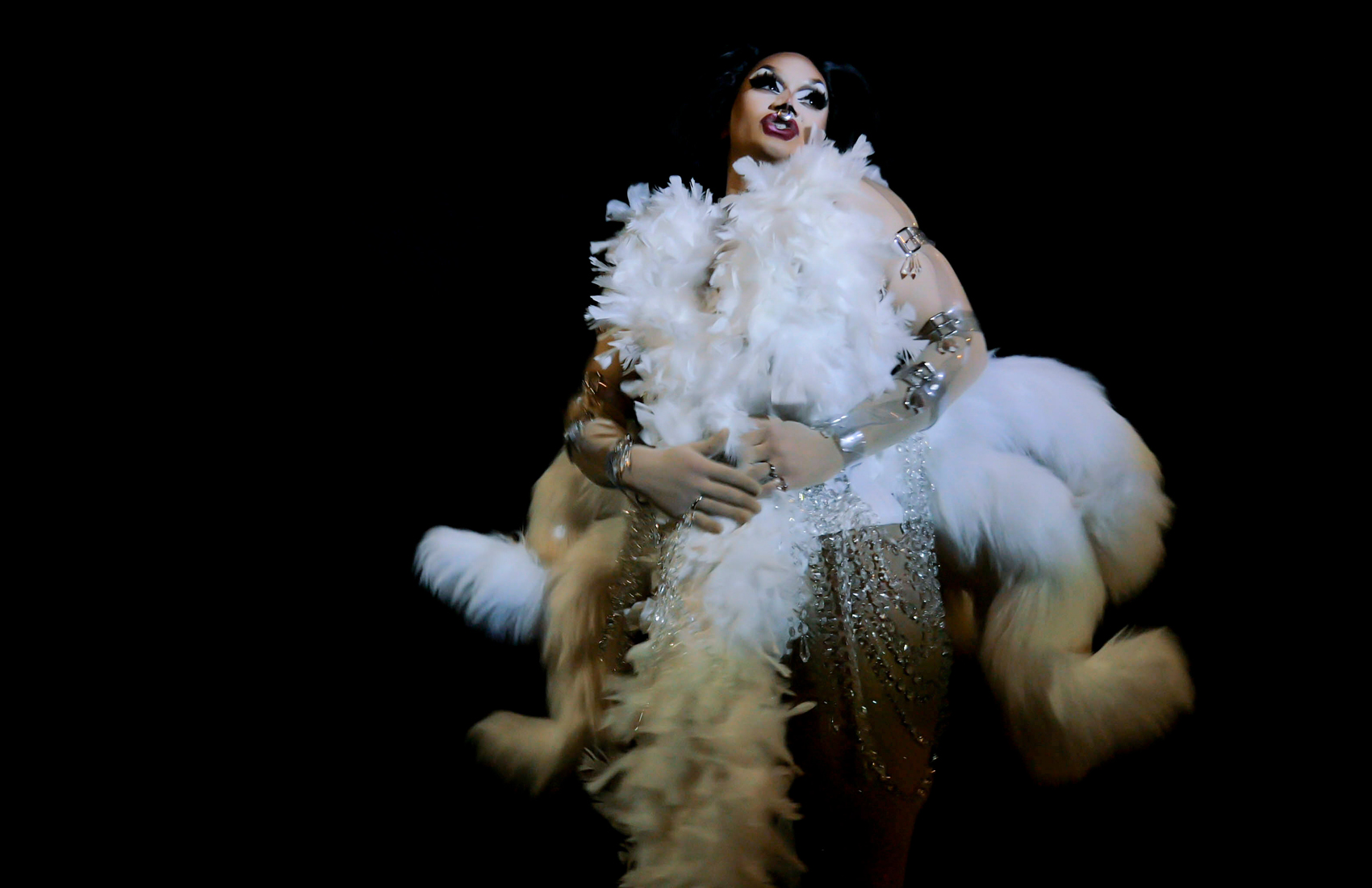
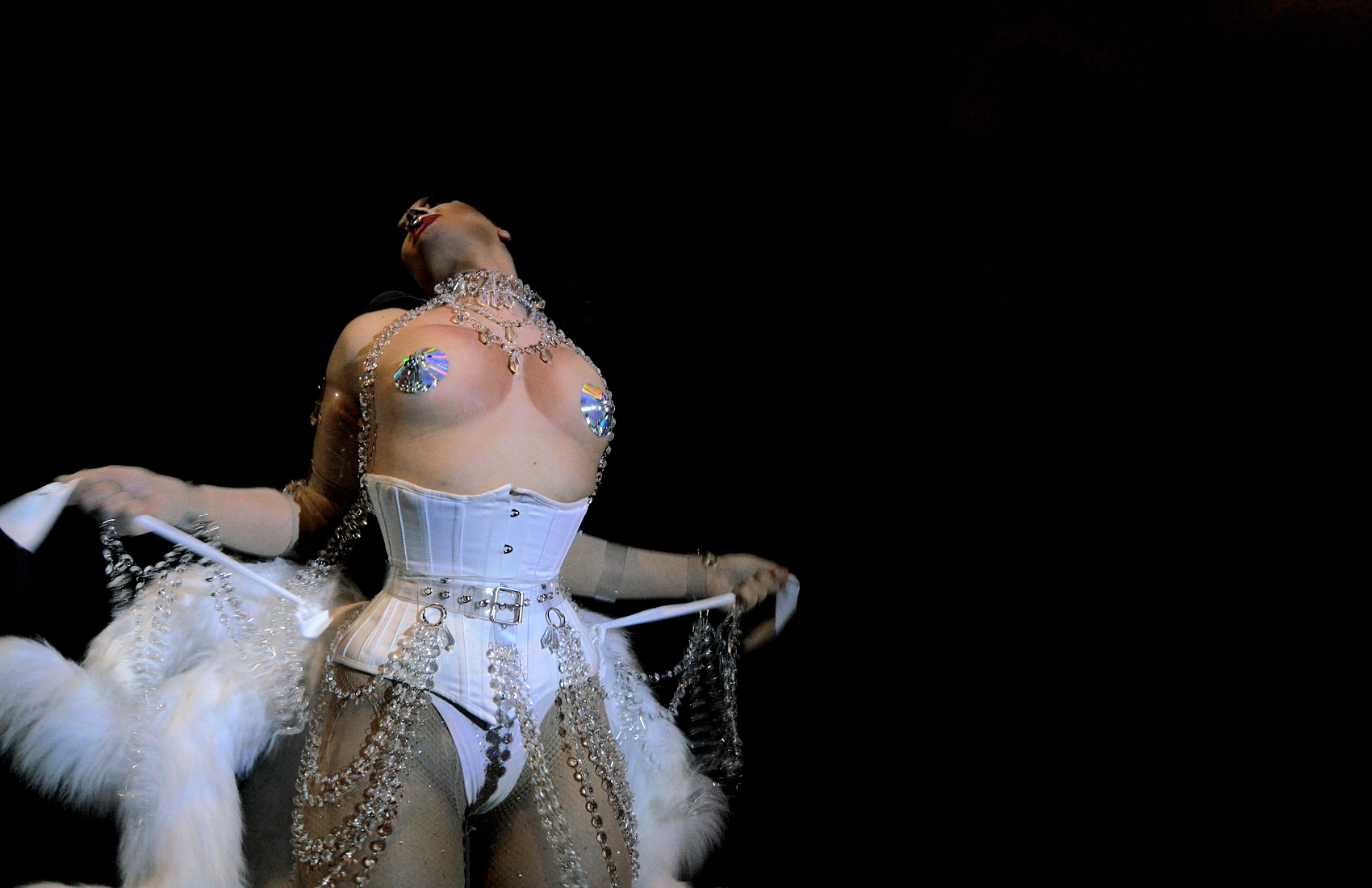
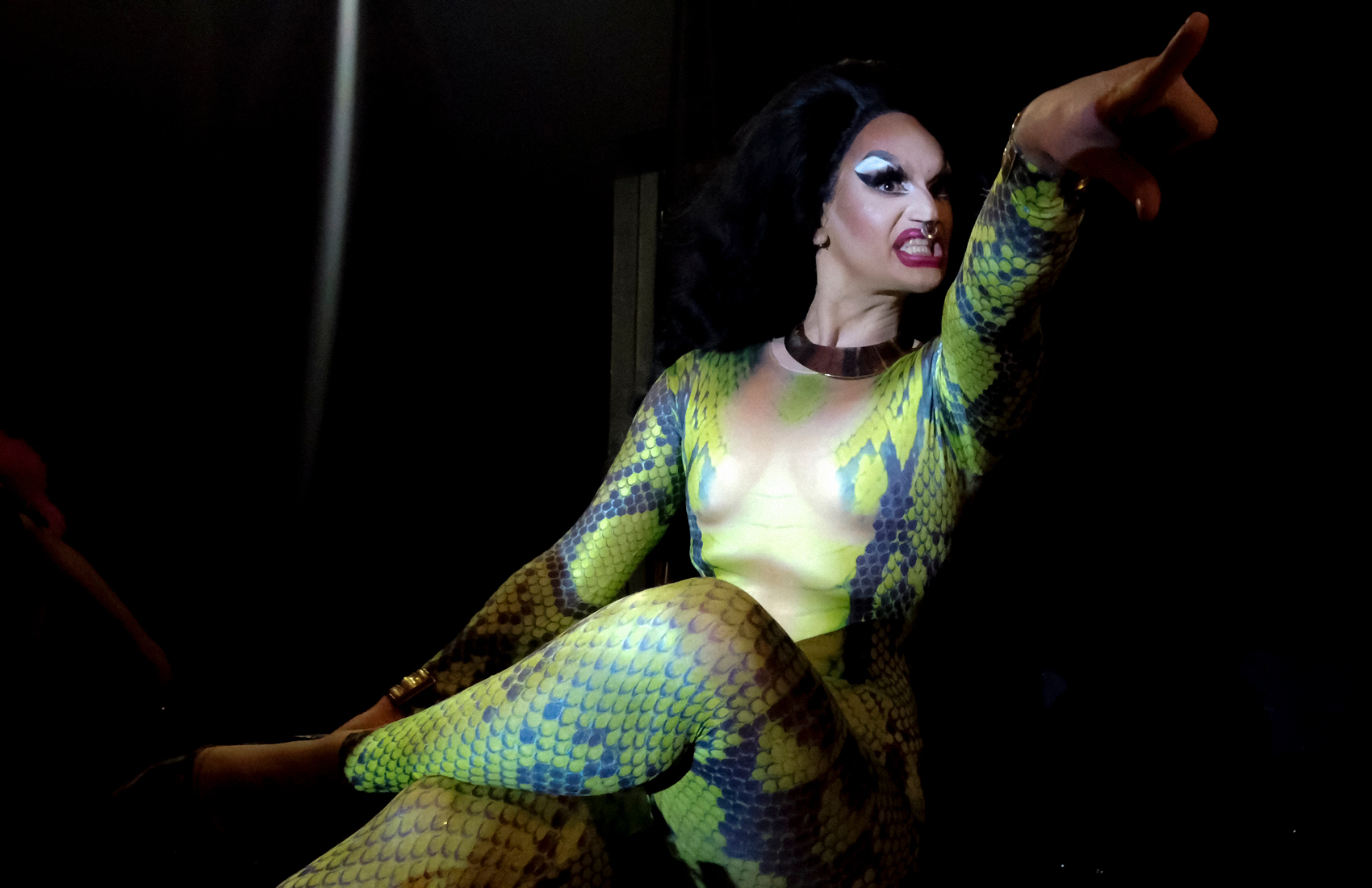
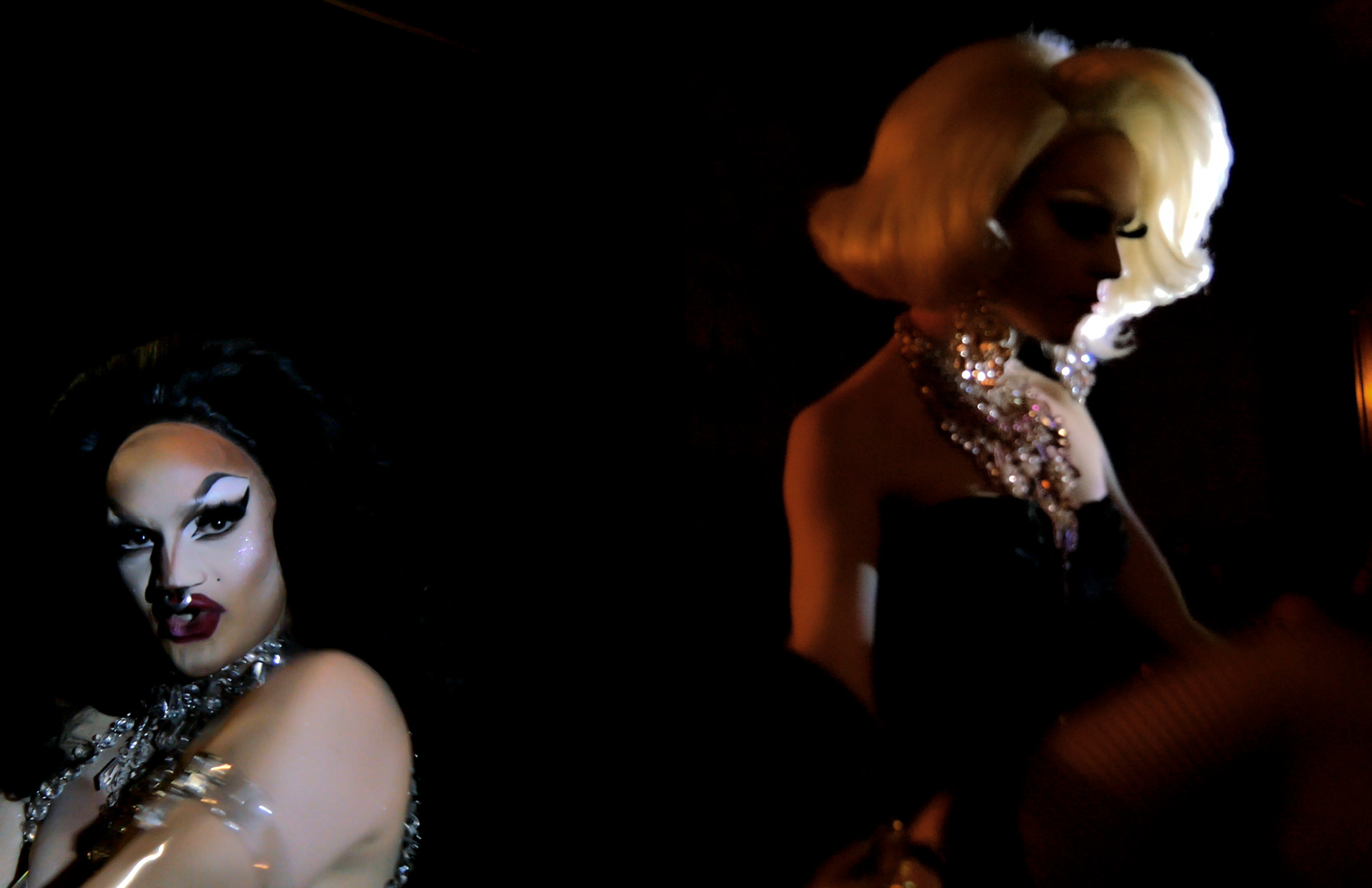
INTERVIEW VERONIKA VON LEAR
As an artist, what impact did the pandemic have on your life?
It’s quite difficult because Drag is an art where you’re close to the public. I ended up adapting to it but it was not easy.
Since it was impossible to perform in bars and clubs, did you manage to express your art in any way?
I have a regular show ‘L’Alcôve’, which I have tried to keep online during lockdown. But it became more like a talk show because I found it interesting to show how these artists were living the lockdown situation.
Did you renew your Art?
I started to take photos and videos by myself, I did some fun things with the means at hand to entertain my audience. I’ve performed as the Carebears, went from Barbara to Tina Turner, and staged Romeo and Juliet with socks… Of course, I was motivated to do Drag at home but this wasn’t easy because it really is an art of closeness to the public.
What measures did you take to keep performing while respecting social distancing?
We had to use social media because it was the only way to express ourselves. But it was also a way to entertain people who were not in a safe environment and who were stuck at home. It was meant to give them a way out. So I gave a lot of myself during lockdown.
How did your audience react? Do you have any new support?
The audience was very active during this time, they gave us a lot of love to our community and it really helped us feel good. There was a nice connection between the artists and the public. Social media made us more visible and introduced us to other countries. People from all over the world wanted to know more about the French Drag scene.
Did you manage to generate income from your art during the pandemic situation? Is the donation system working?
The donation system worked quite well during lockdown, people were generous and we managed to raise a lot of money, but that’s sure not what you get for performing in clubs, four times a week. But now, live shows are back again. In September I will do the last “Alcôve” of the season at the Club Caverne in the 6th district of Paris and we will welcome up to 75 people.
With the end of lockdown and the proliferation of online shows, the audience can run out of interest. How do you maintain it?
I filmed and shared my art but I knew that it would bore the audience in the long run… So I did video clips in different settings, one in a bar, another one outside in the street,… just to expose different things I have worked and researched on.
What do you miss the most about Drag events?
What I miss the most in live shows is sharing with people, laughing with them. I also miss the stage a lot, it’s incredible to be on stage, what you can express, the public’s feedback… It’s magical to be on stage.
Do you think the Parisian Drag scene will survive this crisis? What future for all these Drag Artists?
If there is a second lockdown, it can be very problematic since bars, clubs, and restaurants are going to close and our business basically depends on them… But I think Drag will survive because it’s being more and more introduced to a mainstream audience, which is both good and bad at the same time. On the plus side, the art of Drag gets more attention, which is not nothing. Unfortunately, the mainstream Drag can be bland and unoriginal; this has an impact on the vision of drag-art. What sells is not necessarily what is. A certain type of drag is put in the spotlight while Drag is very diversified. It’s a multi-disciplinary, multi-genre art form, whereas the Drag that we see on television is, unfortunately, white, cis, young, and handsome.
However, the Parisian Drag scene does not make a living from this activity, we must be 4-5 max to have it as a full job, the other ones have side jobs. What is the future of this scene? It’s a great mystery, I’m lucky enough to a lot of experience, and to be able to keep organizing things, that’s really not the case for everyone.
The Drag World has been very involved in the Black lives matter movement lately. Why is it so important for your community to support such a cause?
Drag has always been politically active. We are already a highly discriminated community, and we can’t just let people discriminate against other people. We are militant art, so we must fight against discrimination. Since Drag is quite a trend right now, it can bring visibility to communities that have less. We must go in the streets and fight for our rights, for equality!
What can be the role of Drag in this global pandemic situation?
Drag in these difficult times brings joy to people, we are still clowns, even though our art is very active, Drag remains a form of entertainment. We have to bring fantasy to those who are locked at home with difficult family conditions (or other), bring them love to help them overcome those struggles.
Do you have any upcoming projects planned for the long haul?
I have TV projects, commercials, music videos, a lot of things planned for the new school year, I hope they will be maintained and I’m also working on launching my Youtube channel.
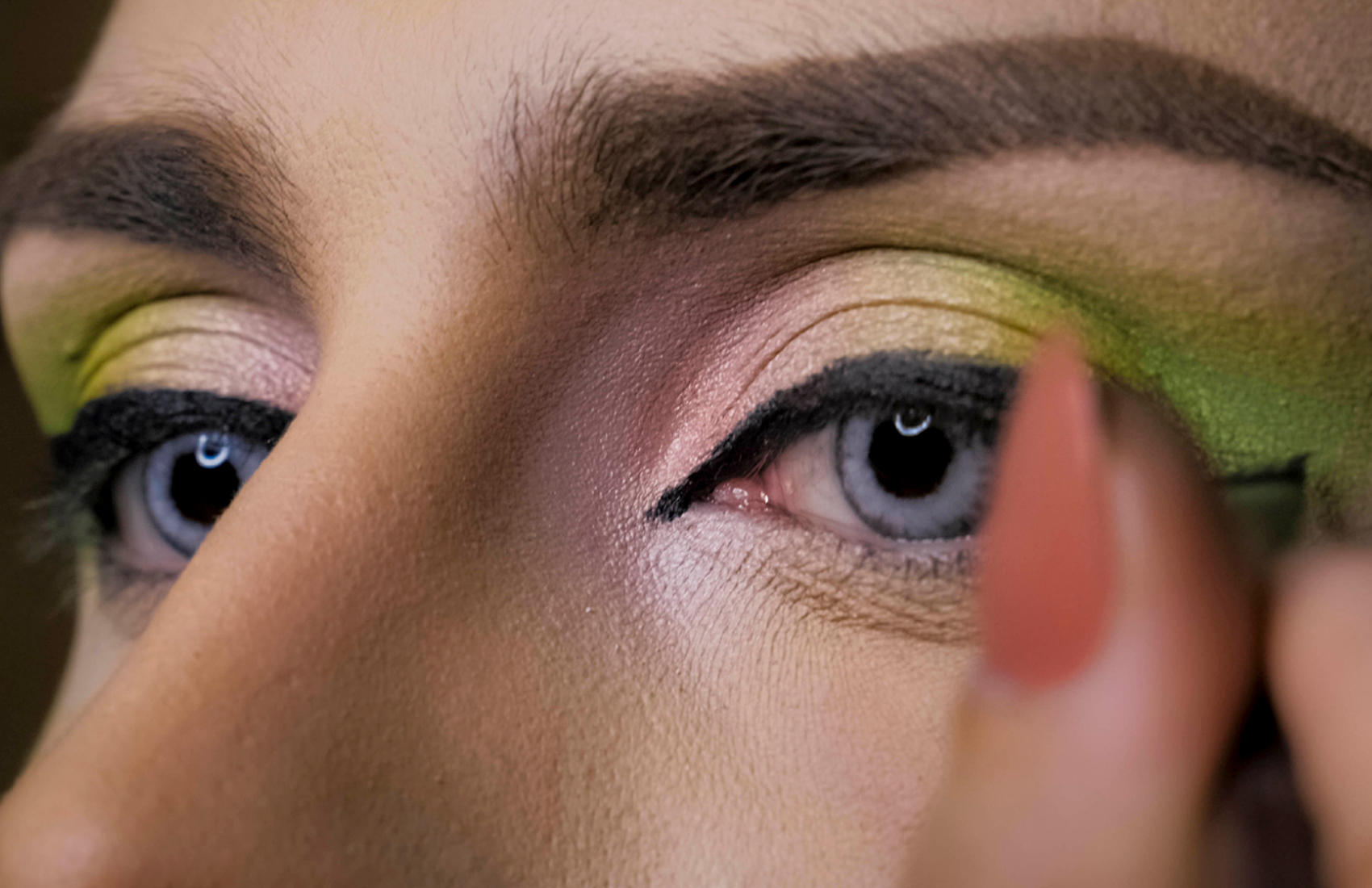
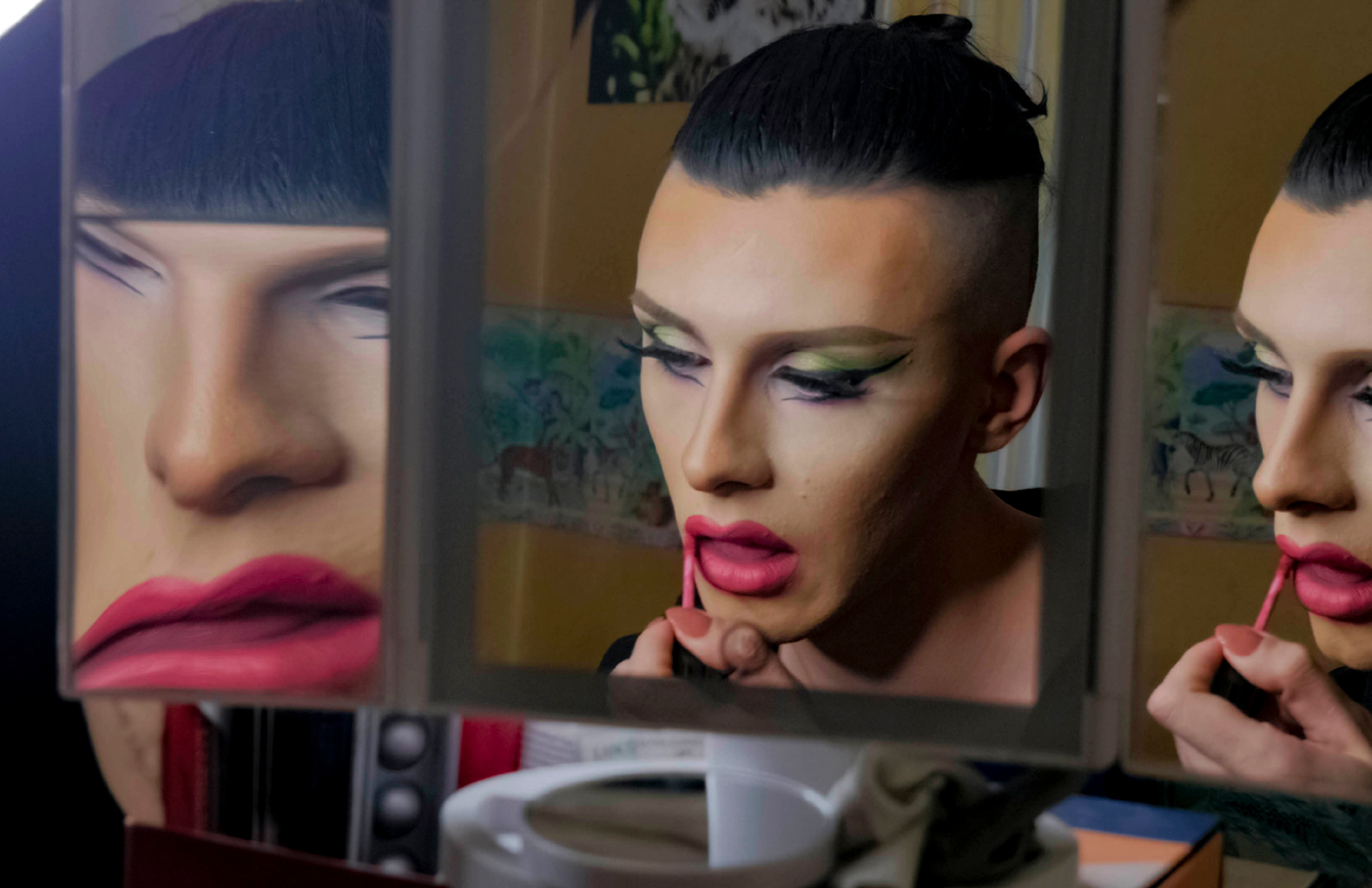
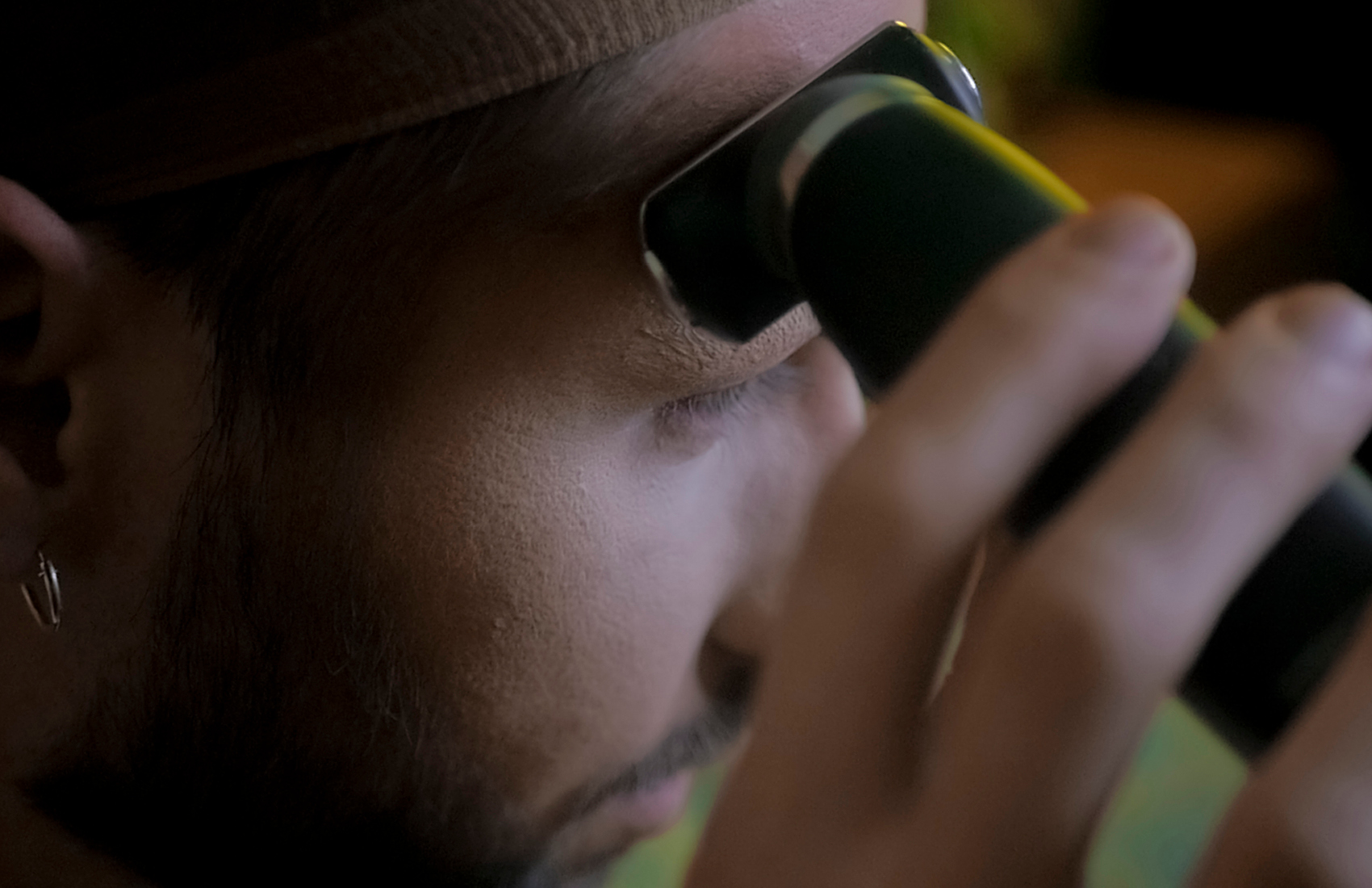
INTERVIEW SHEITAN
As an artist, what impact did the pandemic have on your life?
During this time I have been reconsidering my art quite a bit. Before lockdown, I tried gathering resources to create new costumes. I also created some plays that I plan to show when things get better.
Since it was impossible to perform in bars and clubs, did you manage to express your art in any way?
I’ve done a very few online shows; I have made a small session with my audience and I answered their questions and I performed with a friend for another online show.
Did you renew your Art?
I worked on my shows, on costumes, I tried to acquire new skills like learning how to sew…
How did your audience react? Do you have any new support?
Even if my audience was active on social media, I got off them quite a bit so I’ve had very little interaction with them since lockdown happened.
Did you manage to generate income from your art during the pandemic situation? Is the donation system working?
Not at all, I didn’t make any income, the online shows I did were for fun and a way to share with the audience. On the opposite, my art is what costs me, I invest in it more than I earn from it, but this is a personal choice. I know that for some online shows on Instagram the donation system worked because there was good communication for it.
With the end of lockdown and the proliferation of online shows, the audience can run out of interest. How do you maintain it?
In order to maintain the public’s interest, it is necessary to constantly expose new things.
What do you miss the most about Drag events?
What I miss the most in Drag parties is to be outside and perform, to interact with the audience.
The Drag World has been very involved in the Black lives matter movement lately. Why is it so important for your community to support such a cause?
People of color are very much present in the Queer and Ballroom movements. Many of us have an ethnic background so we need to speak up because we have visibility. It’s easier for us to get people’s attention, but in addition to all that, in any case, we must fight for the equality of all. It’s a matter of justice.
What can be the role of Drag in this global pandemic situation?
We’re here to make people laugh and to cheer them up, to get away from the daily grind.
Do you have any upcoming projects planned for the long haul?
I have a video project I’m doing with several Queens that I invited to Reunion Island, where I come from, we are going to shoot in the upcoming weeks. Unfortunately, Drag artists at Reunion Island are very, very badly represented, I want to show that Drag also exists over there and that Reunion Island is not just what we see on postcards. I want to convey an image of the Reunionese Queer youth and show what they can do. Back to Paris, I’m going to try to approach places to do things while respecting the sanitary regulations.
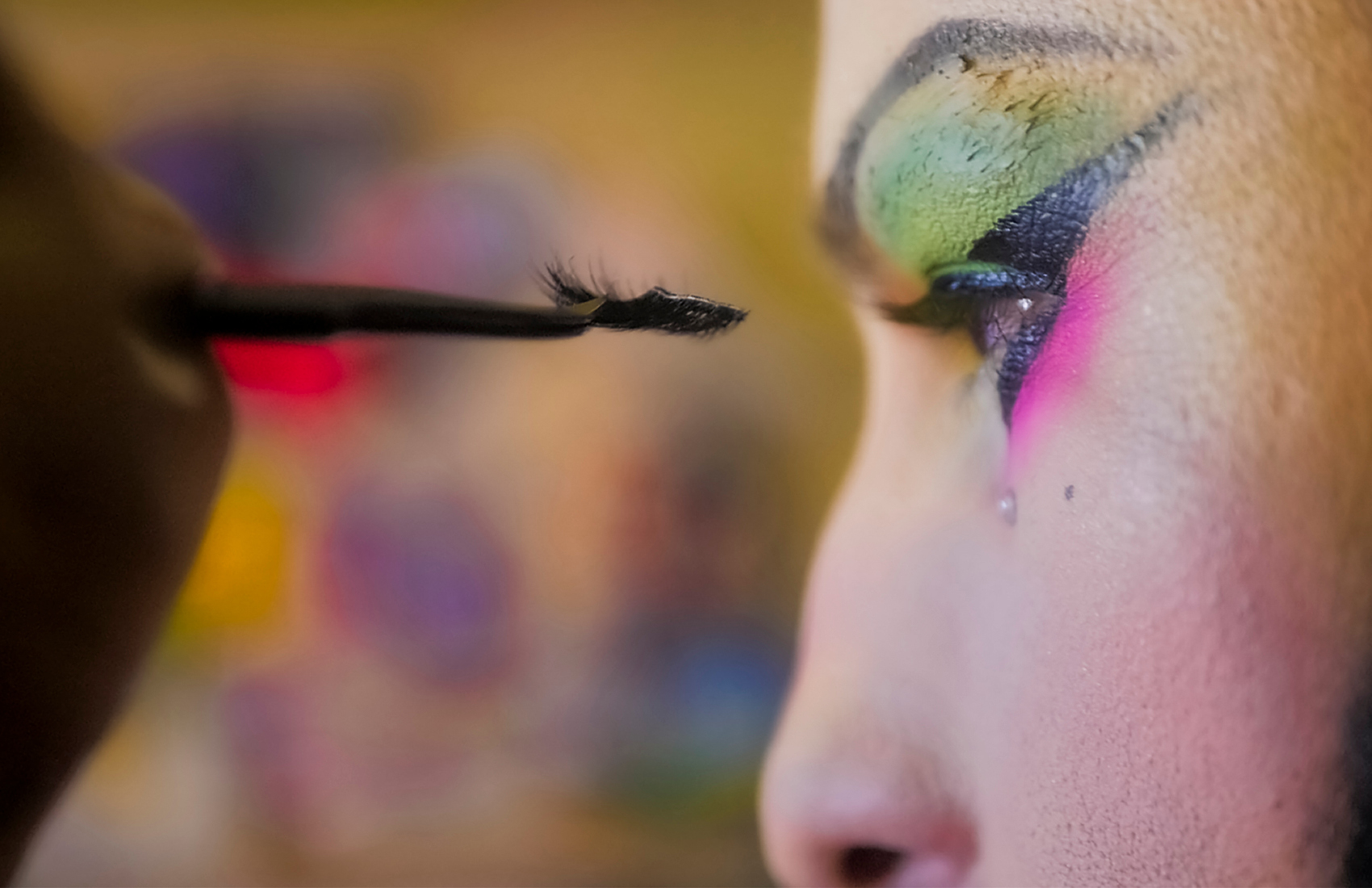
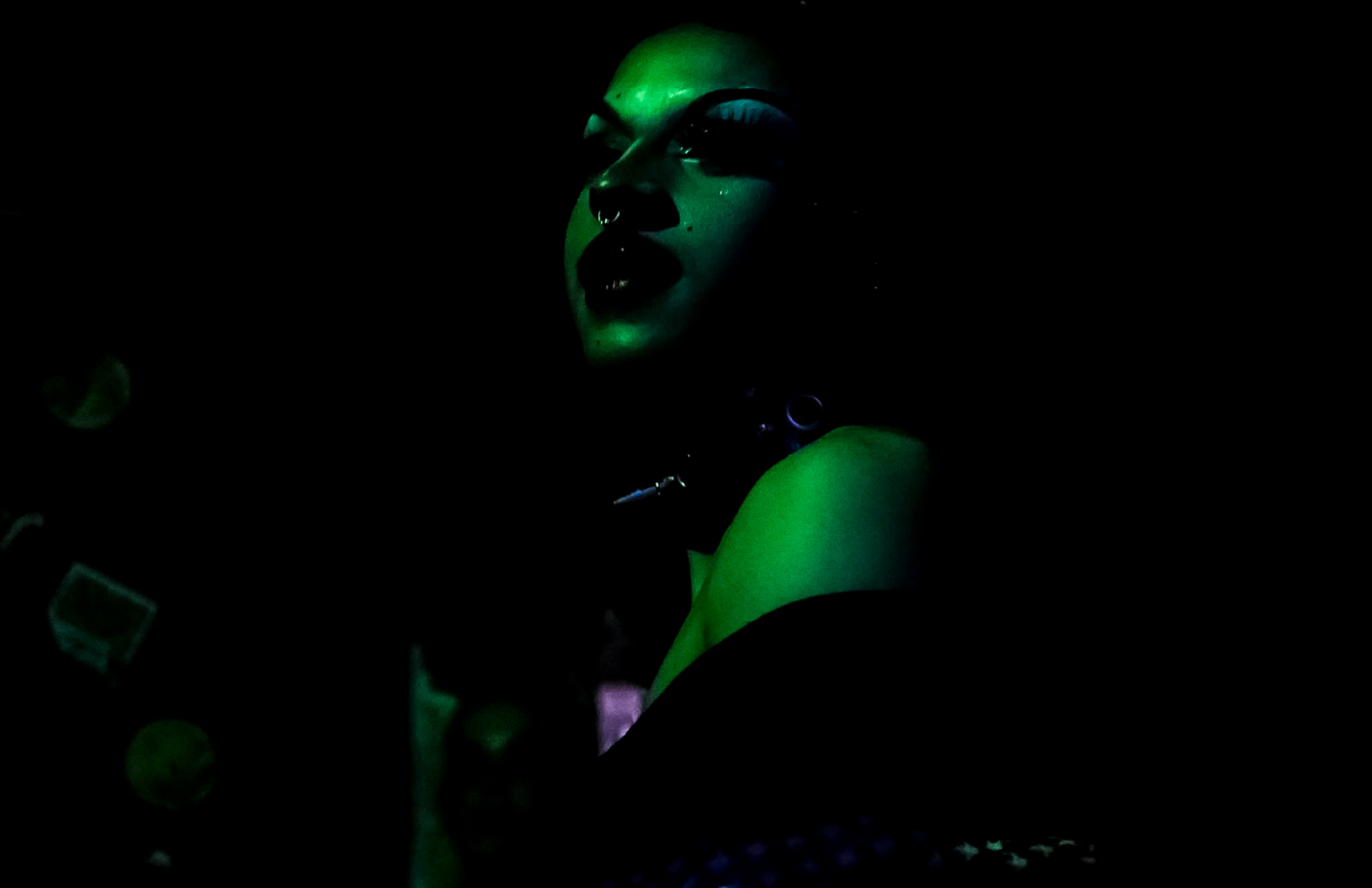
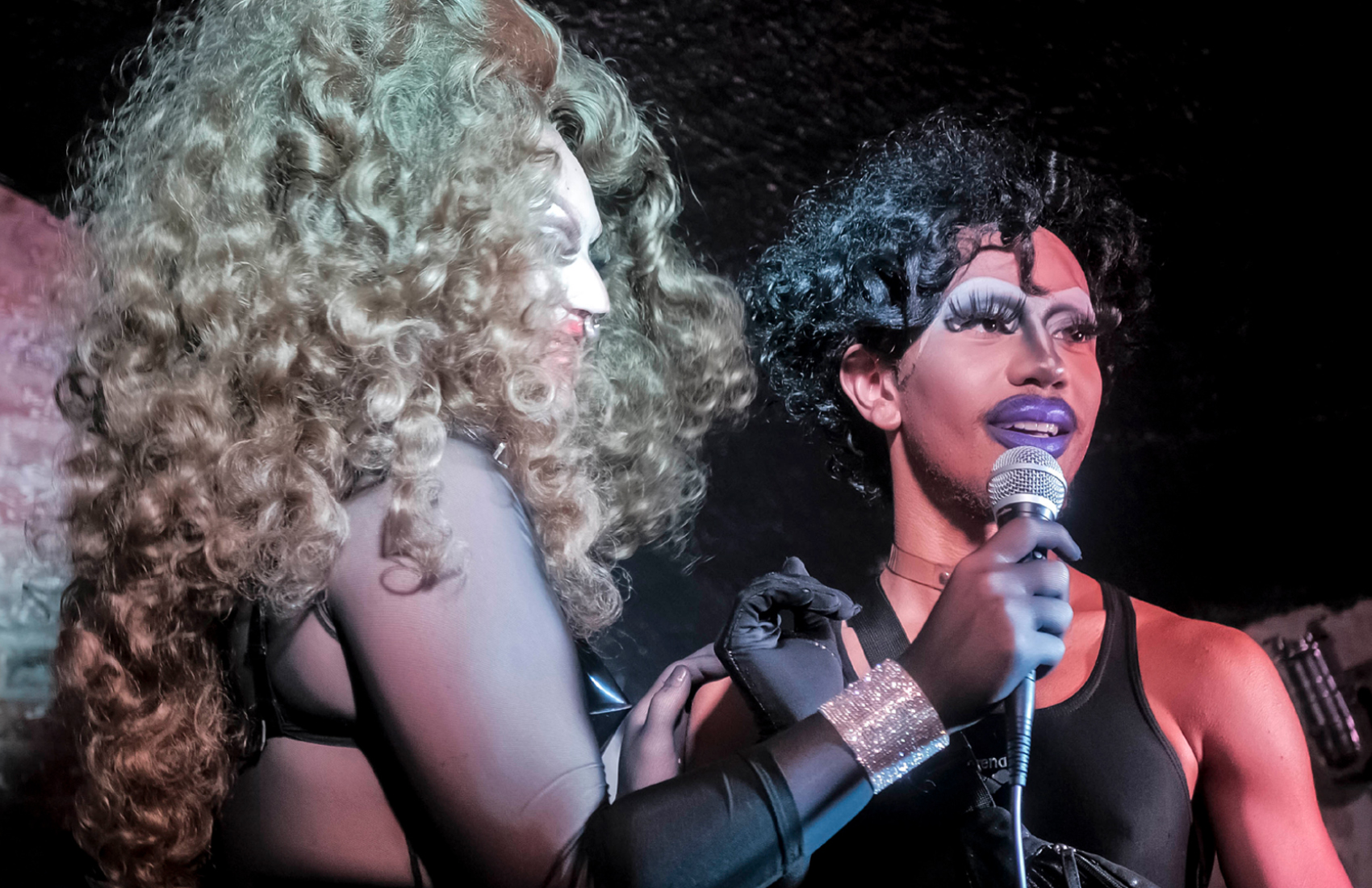
INTERVIEW LE FILIP
As an artist, what impact did the pandemic have on your life?
It was complicated for me as a Drag Queen but mostly as a stand-up comedian. My character comes to life with comedy. I get inspiration from my environment so the lockdown situation didn’t give me many ideas besides the monotonous daily routine. My creativity has gone down while I was writing a one-hour show for October and that put me in a tight spot. It changed the show in itself because I was forced to talk about lockdown.
During that period of time, I was stuck at my boyfriend’s house without any makeup, wigs, or Drag outfits… It was hard because I was a bit frustrated not being able to produce anything while seeing my sisters creating things during that time. However, I still launched my Youtube channel and will post my videos in August.
Did you renew your Art?
I’ve been doing Drag for a while now, I have a well-established character. It took me 7 years to find the character that suits me so this situation didn’t really influence my Drag in itself but rather how to work on my shows. It made me consider new ways to produce my shows while dealing with constraints.
What measures did you take to keep performing while respecting social distancing?
When lockdown ended, I started making online performances. What’s interesting with virtual shows is that many of these small queer shows were able to get the line up of their dream. They were able to book international Drag artists that they couldn’t have afforded bringing in France in real life. In the end, after making 1 hour of video we feel a bit frustrated… All this time spent to prepare and then feeling like you haven’t enjoyed it enough…
How did your audience react? Do you have any new support?
During lockdown, I couldn’t do Drag, I shared my frustrations on Instagram which was healing and also allowed me to stay connected to my audience. People would give me advice on which type of content they would like to see. I really had interesting conversations. It made me more attuned to them while I am much less comfortable in social situations than in performing art.
Did you manage to generate income from your art during the pandemic situation? Is the donation system working?
I think it was a very hard time for some people economically speaking. There were fundraisers for Drag artists who could no longer pay their rent. Some Drag queens who are trans women have had a difficult time getting hormone treatment. Very young Drag queens who come from low-income backgrounds have been unable to afford the means to transform themselves. It’s complicated in France to get help because you either have to be an occasionnal worker or a self- entrepreneur. To get this status, you have to declare your income but in the Drag scene, events are not declared, so you’re usually paid under the table. Therefore, we are not allowed to get help…
With the end of lockdown and the proliferation of online shows, the audience can run out of interest. How do you maintain it?
I don’t really know… I think people really want to go out and party, that’s why there are so many free parties in Vincennes and Bobigny. It shows that there is a strong request for nightlife events. Our public is tired of online performances and wants to see real shows.
What do you miss the most about Drag events?
What I miss the most is being on stage and making people laugh.
Do you think the Parisian Drag scene will survive this crisis? What future for all these drag queens?
I think we’re going to have a more prolific Drag in the future. New projects are coming up soon: music videos, films, or documentaries… Drag in Paris is taking a mainstream, more professional direction with greater opportunities for us. We were actually on this track before the pandemic. I think we’re about to reach an American level, it’s really becoming an industry.
The Drag World has been very involved in the Black lives matter movement lately. Why is it so important for your community to support such a cause?
The Drag artist is already a figure on the edge of society. We have the determination to regroup the outcasts in order to have more strength and to heal our suffering. Even if we may not suffer from the same thing. If there’s one thing we all understand, it’s suffering.
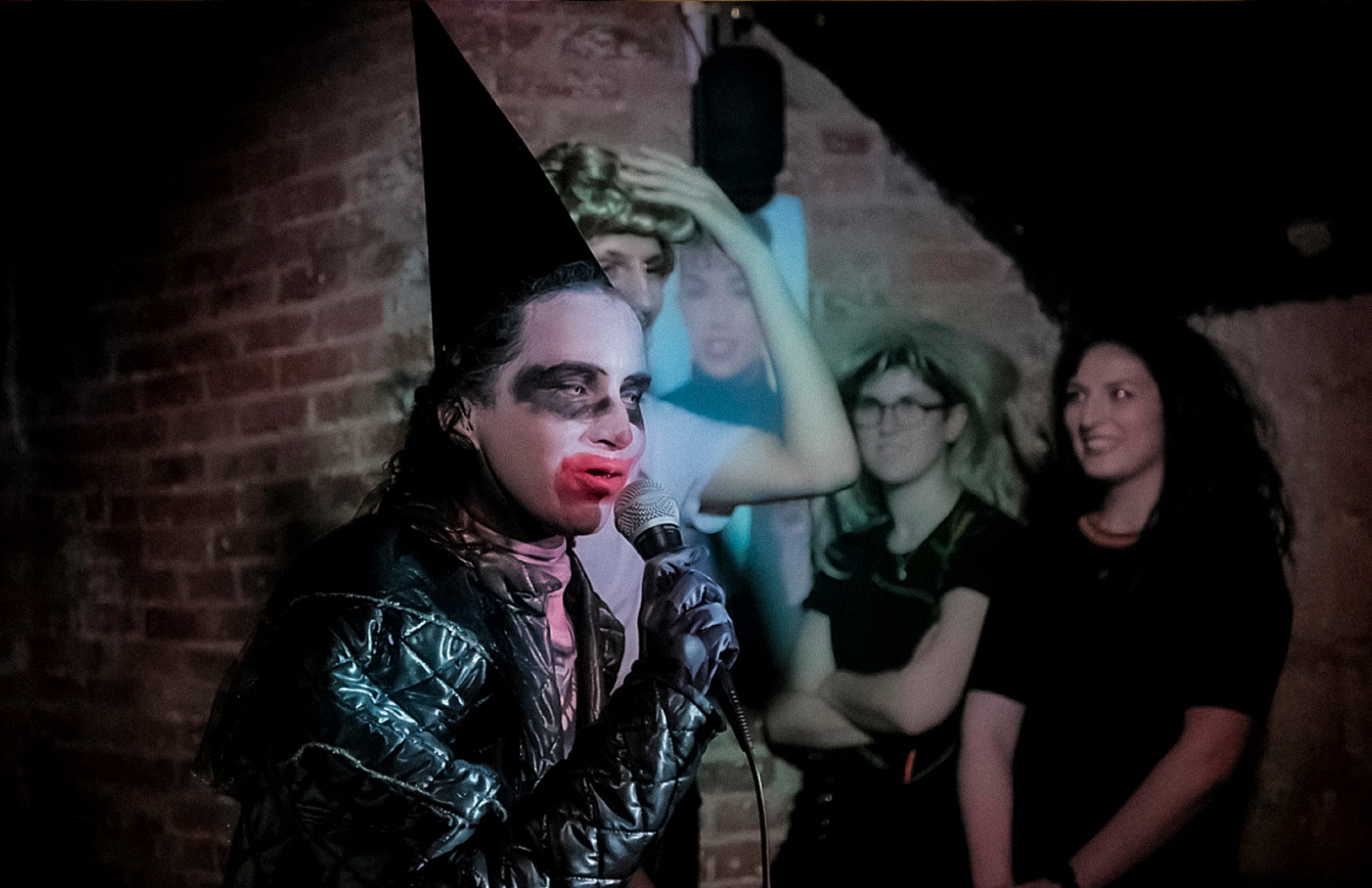
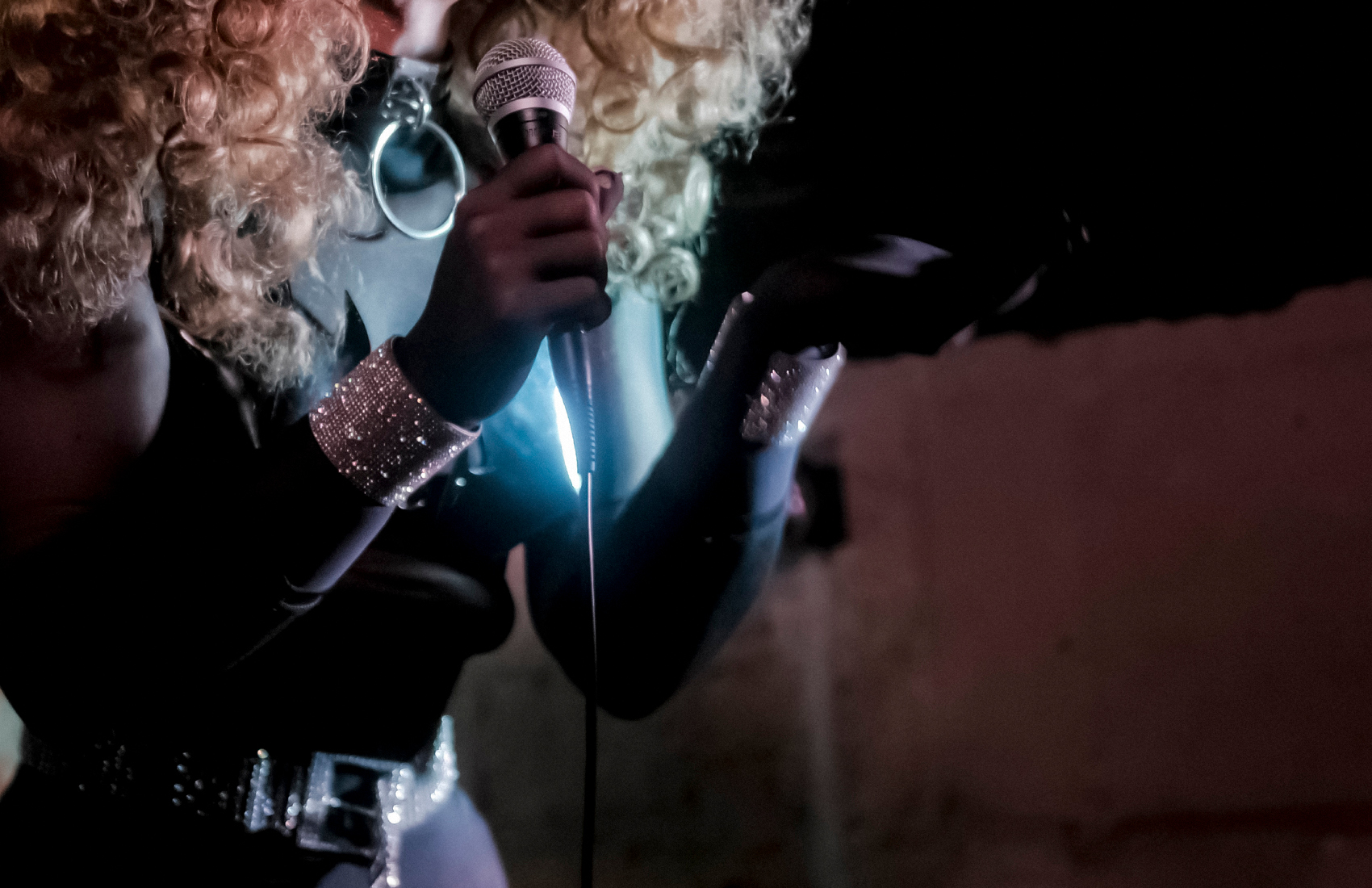
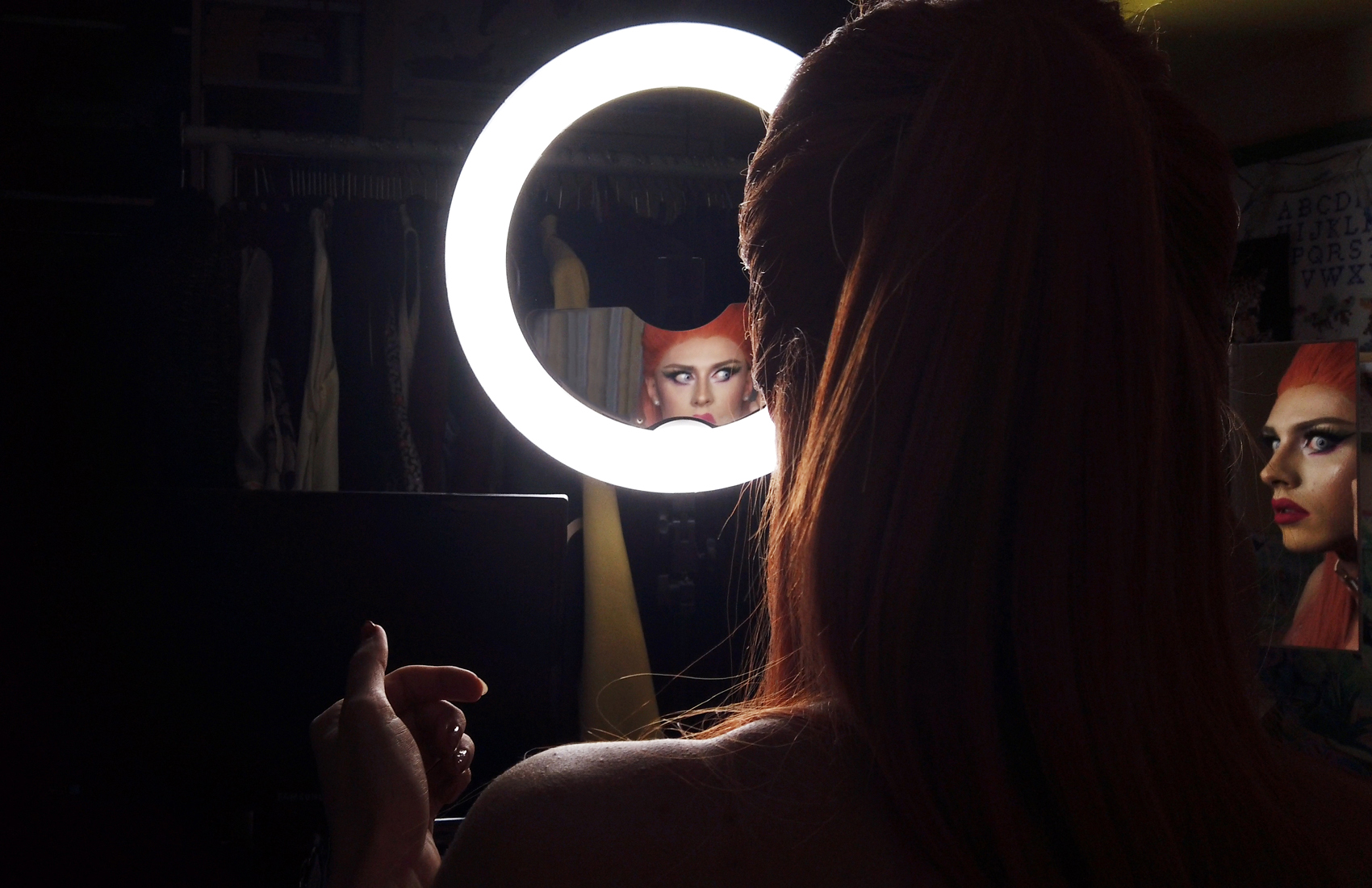
INTERVIEW GHOST ELEKTRA
As an artist, what impact did the pandemic have on your life?
At the beginning, I really saw it as an opportunity to create looks that I had in mind for a long time but didn’t have the time to make. When I was booked for a party, I used to tell myself that people wanted Ghost Elektra. It’s a specific kind of makeup, a specific identity so I didn’t have time to experience other things… I have also wanted to launch my Youtube channel and make Drag videos but I quickly realized that doing Drag at home and getting on a stage wasn’t the same thing at all. You’re alone in a room in front of the camera, it’s frustrating.
What measures did you take to keep performing while respecting social distancing?
I live in Berlin but half of my work is organizing events in Paris. During lockdown, flights were blocked, so I got stuck in Berlin. Like most Drag artists I started doing shows online, on Twitch. I think ‘Biqtch Puddin’ — the winner of Dragula – was the one who started the trend of online shows. Her first line up included a lot of Ru Paul’s Drag Race artists do it worked out pretty well. It was a huge success at first, but then people got bored because there were too many online shows on the market. You can share your art on social media but it won’t be enough for you to make a living from it. On the Internet, people want to have it all, instantly and for free…
How did your audience react? Do you have any new support?
On the internet there are no borders, these online shows allowed us to reach a wider audience through the world without having to cross a country to perform. For example I took part in the digital show for Milan’s LGBT Pride and got a lot of Italian followers.
Did you manage to generate income from your art during the pandemic situation? Is the donation system working?
The biggest amount I made on a digital show is 150 euros. The rest of the time, I made a lot less than that. if you take into account how much time you’re putting, it’s not much… It’s way less than what I was making from putting on real shows. Then, online shows became so competitive that it was impossible to raise any money. Plus, the crisis emptied the pockets of the entire world so a month later, people that supported us could no longer afford giving money to the community. That’s why I decided to stop doing digital shows.
With the end of lockdown and the proliferation of online shows, the audience can run out of interest. How do you maintain it?
We should find a new platform. A bit like Patouchka Banana does. She performs but not only that, she also does interviews, she invites LGBTQ associations, public personalities, singers, comedians… It’s called ‘Patouchka part en live’, and it’s broadcast every Sunday. She interviewed me a few weeks ago, I find her show very entertaining and I think that’s the kind of thing we should take example of.
Do you think the Parisian Drag scene will survive this crisis? What future for all these drag queens?
Drag in Paris will become more and more mainstream. I think it’s becoming more and more mainstream and doesn’t resonate with Drag’s core which is entertainment. In my opinion, you don’t necessarily have to be funny to be a Drag Queen but you have to be able to hold a microphone and put on a show. Unfortunately, new Drag generation’s reference is Ru Paul’s Drag Race. They’re embracing codes without knowing where they come from. It is important to know that, basically, we appropriate the Black community’s codes. Sadly the new Drag generation doesn’t know about that, at least not many. With this more mainstream direction, we completely forget about this community because what we see on television is a very white Drag.
The Drag World has been very involved in the Black lives matter movement lately. Why is it so important for your community to support such a cause?
Drag is fundamentally a racialized and activist art. This art was created in the United States in response to the interdiction of being gay, being trans, and dressing in clothes of the other gender. This movement was launched by people of color. At the time and still now, being queer is relatively acceptable but being queer and black is always difficult. Because they were persecuted, coloured Queer people got together and created voguing and the Ballroom scene. And that’s where all the Drag vocabulary comes from. Ru Paul’s Drag Race still promotes white, thin, and beautiful Drag Queens who are on the covers of magazines. So we completely forget about Drag’s history and its activism. When you’re a Drag, you can’t enjoy this art’s success without thanking the people who fought for the right to express yourself. Generations of people were beaten up, insulted, murdered so we can have those rights! When you throw yourself into an art like this one, you must learn about its roots and keep fighting for its values.
What can be the role of Drag in this global pandemic situation?
Since we have visibility in this pandemic situation, I think we should promote sanitary gestures. But honestly, even if at the beginning we thought we were going to give people hope and a feeling of warmth in all that mess, it’s hard because it’s a very difficult time for us.
Do you have any upcoming projects planned for the long haul?
I’m currently working on a marketplace and drag clothes swap that will take place on September 13. We’re also planning a ‘Tech Noire’ event that will take place on September 19 at the Klub -if we get the permission to open again -, and we’re working on a Techno event at La Machine du Moulin Rouge that is scheduled on October and that we’ve been planning for a year. The line-up will mainly be French but hey, it can be canceled last minute so I think we’re going to have to focus on outdoor events…
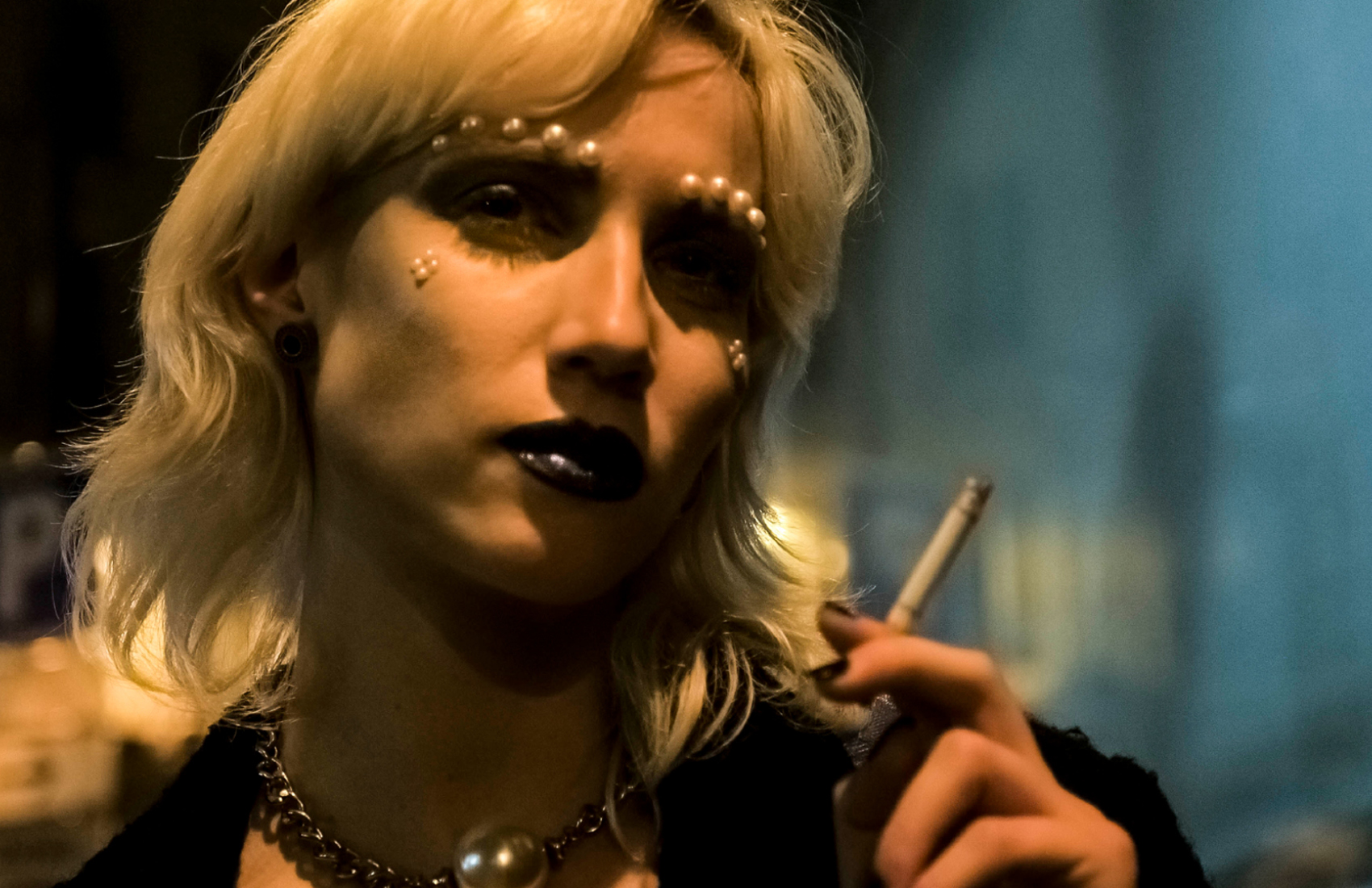
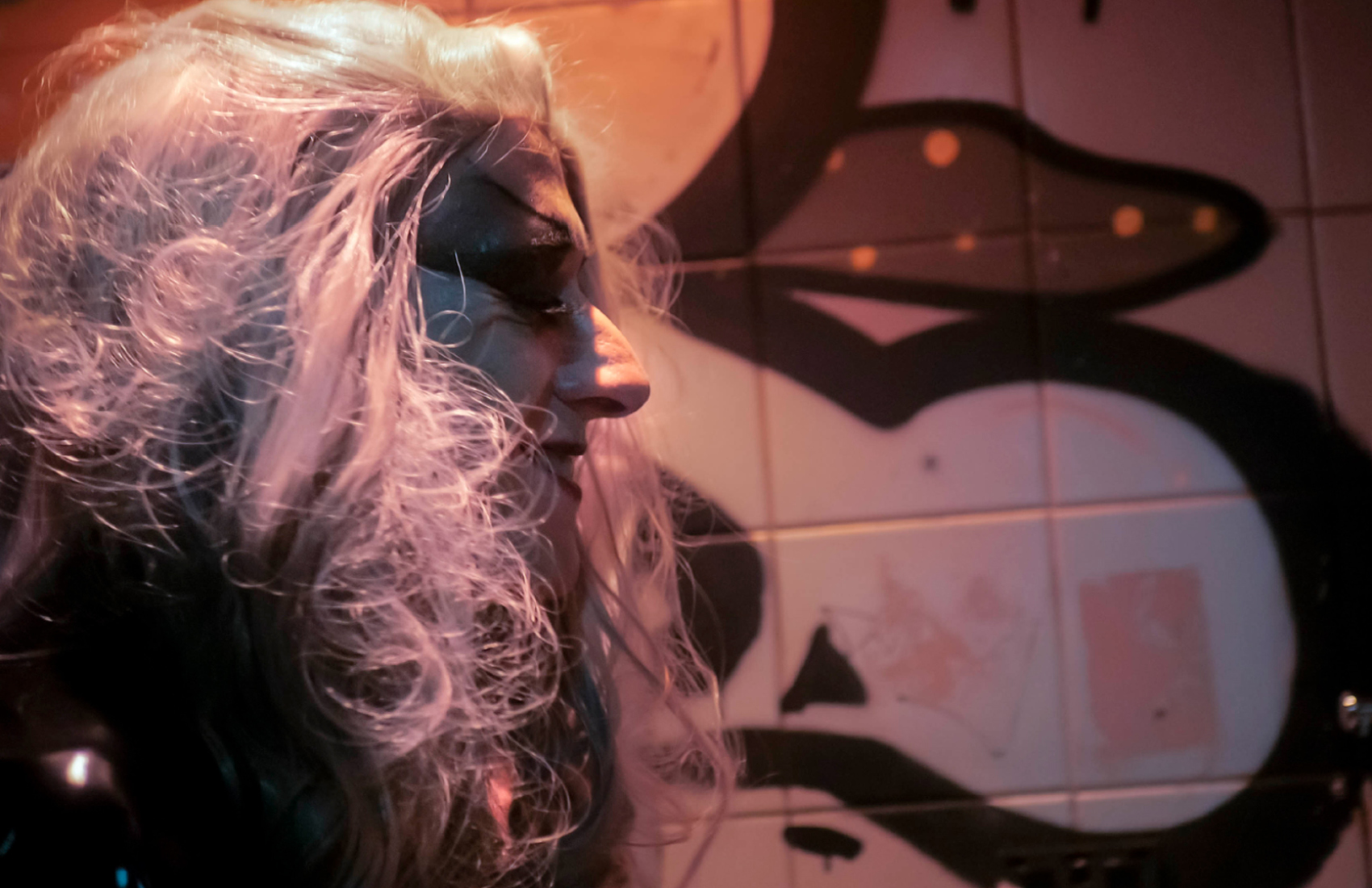
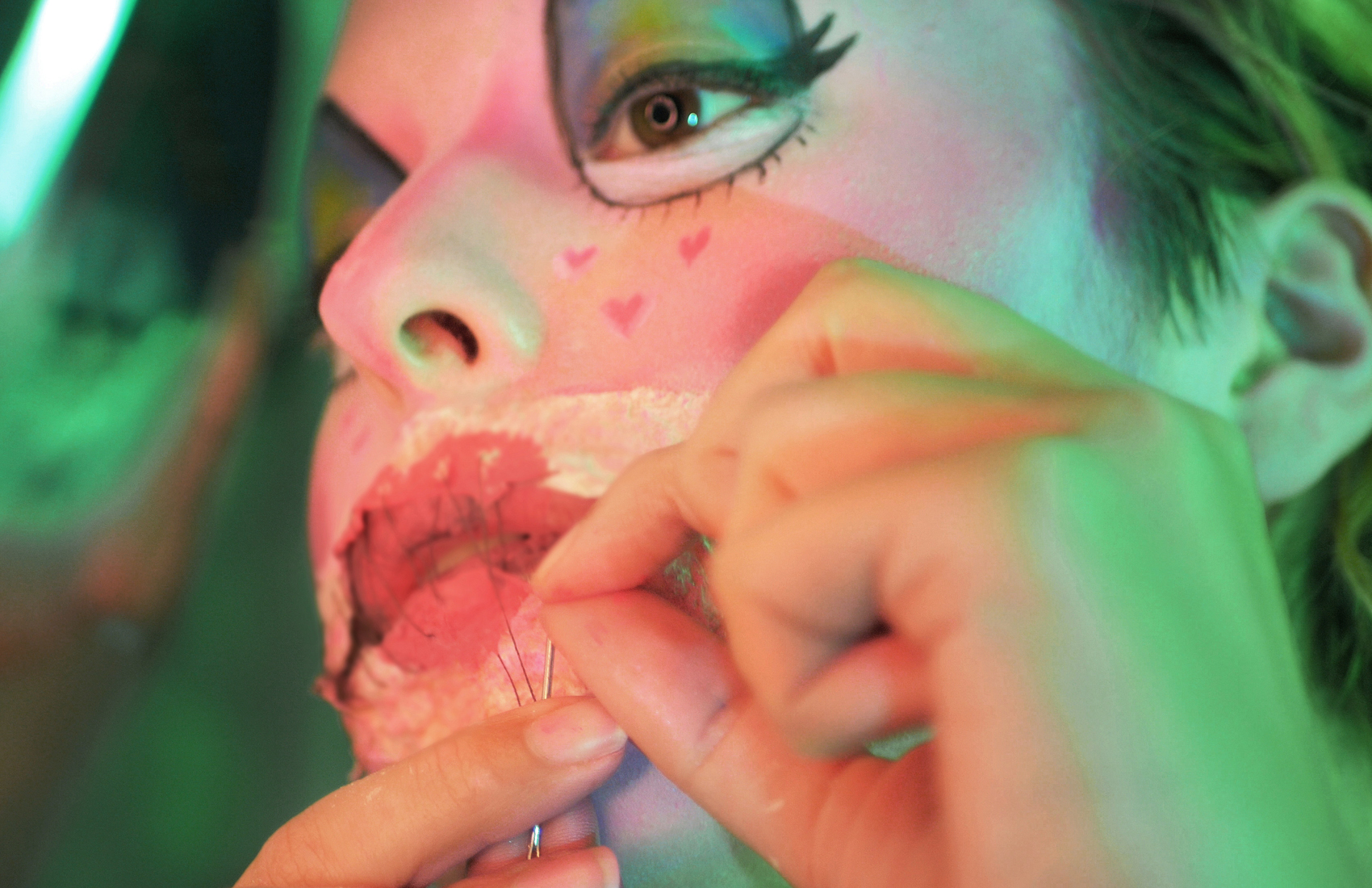
INTERVIEW NUDE DARLING
As an artist, what impact did the pandemic have on your life?
This pandemic has been chaotic for me and for many of us. When you’re a perfomer and you can’t go on stage anymore, it’s complicated to keep being active so it has been a real break for me. The hardest part is that there is no set date for the reopening, so you can’t plan anything ahead…
Since it was impossible to perform in bars and clubs, did you manage to express your art in any way?
I didn’t feel like using social media. A lot of Drag artists tried to do a lot of things to keep promoting this art. At the very beginning, I tried but I got lost. I overdosed on social media and I didn’t feel like I wanted to use them anymore. That made me think that this tool can be nice but it cannot replace real contact with the public. It can’t be replaced by anything else.
Did you renew your Art?
I didn’t manage to focus on my Drag. I tried to do some sewing on my costumes, I tried new hairstyles on wigs… But the motivation was missing, as for everyone I think. Because we didn’t know if we were going to wear them soon. It felt like what made me happy was taken from me… The lockdown situation was very hard for me, I was quite depressed.
With the end of lockdown and the proliferation of online shows, the audience can run out of interest. How do you maintain it?
To keep being interesting for the audience, you have to be super creative. I’ve seen people putting a show on their balcony, it wasn’t Drag but honestly, I think it’s a very good idea to connect with people: an improvised stage on your balcony. Why not?
What do you miss the most about Drag events?
What I miss the most in real shows is sharing and seeing the reactions on the public’s faces.
Do you think the Parisian Drag scene will survive this crisis? What future for all these drag queens?
Drag’s history is made by facing crises. We cannot be stopped from gathering people together and fighting. I’m not worried at all about the Parisian Drag scene because no matter what happens, it will always find a way to survive.
The Drag World has been very involved in the Black lives matter movement lately. Why is it so important for your community to support such a cause?
Drag goes hand in hand with the Black Lives Matter movement. Us, Drag artists, have to fight so that everyone has the same chances, no matter what your appearance, skin color, sexual orientation is… We are all different and this also what Drag is about: making people embrace diversity.
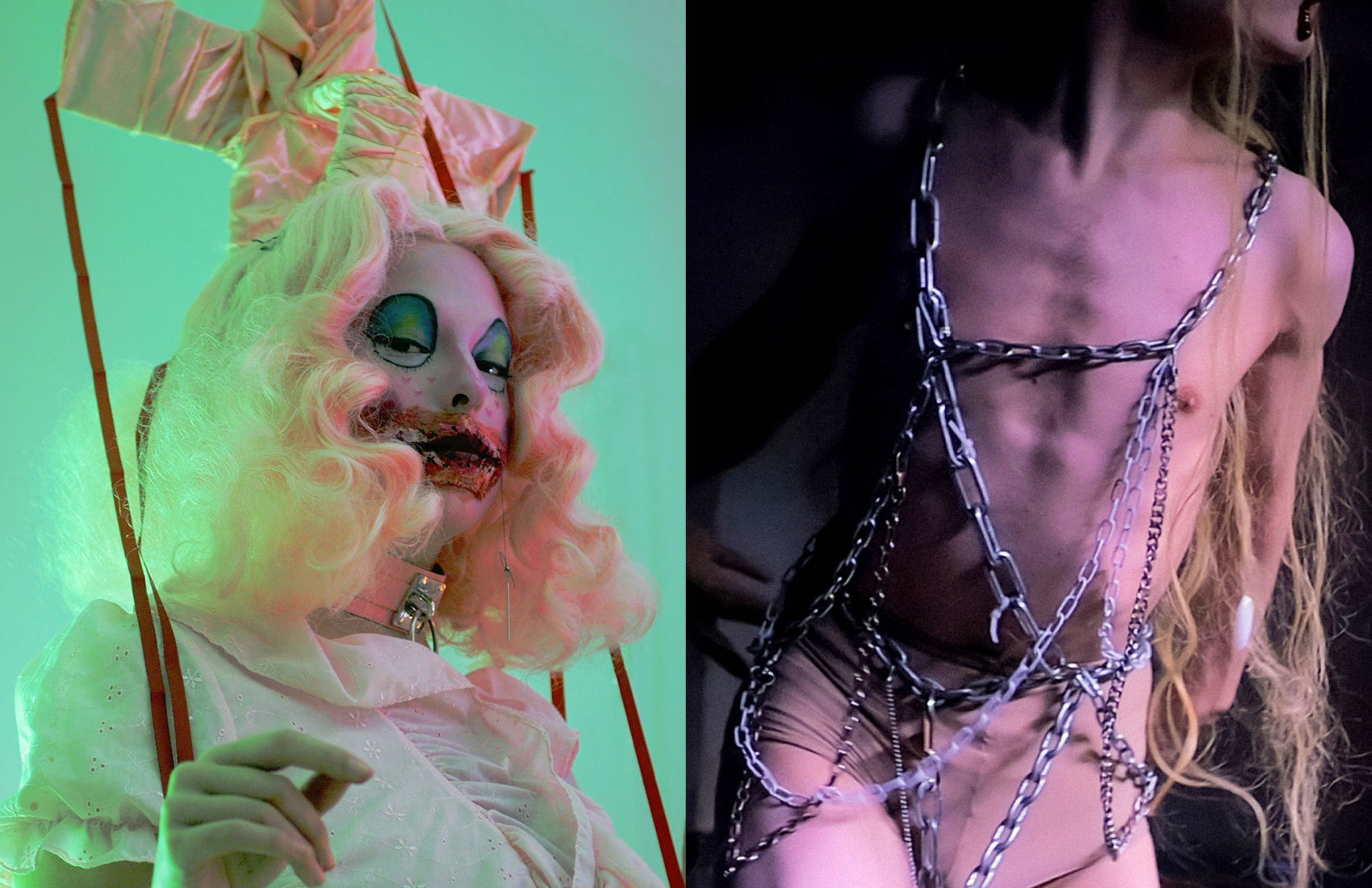
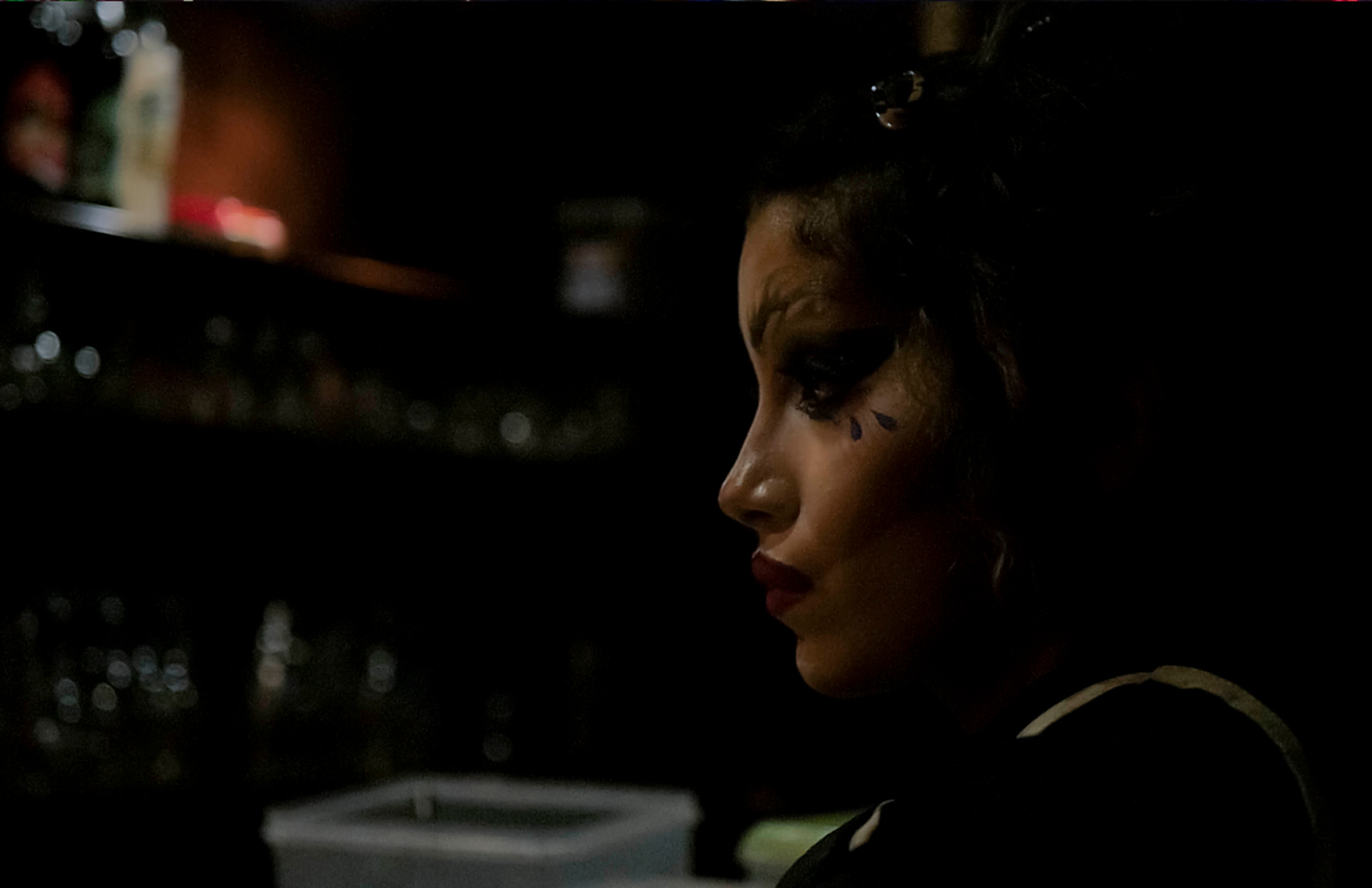
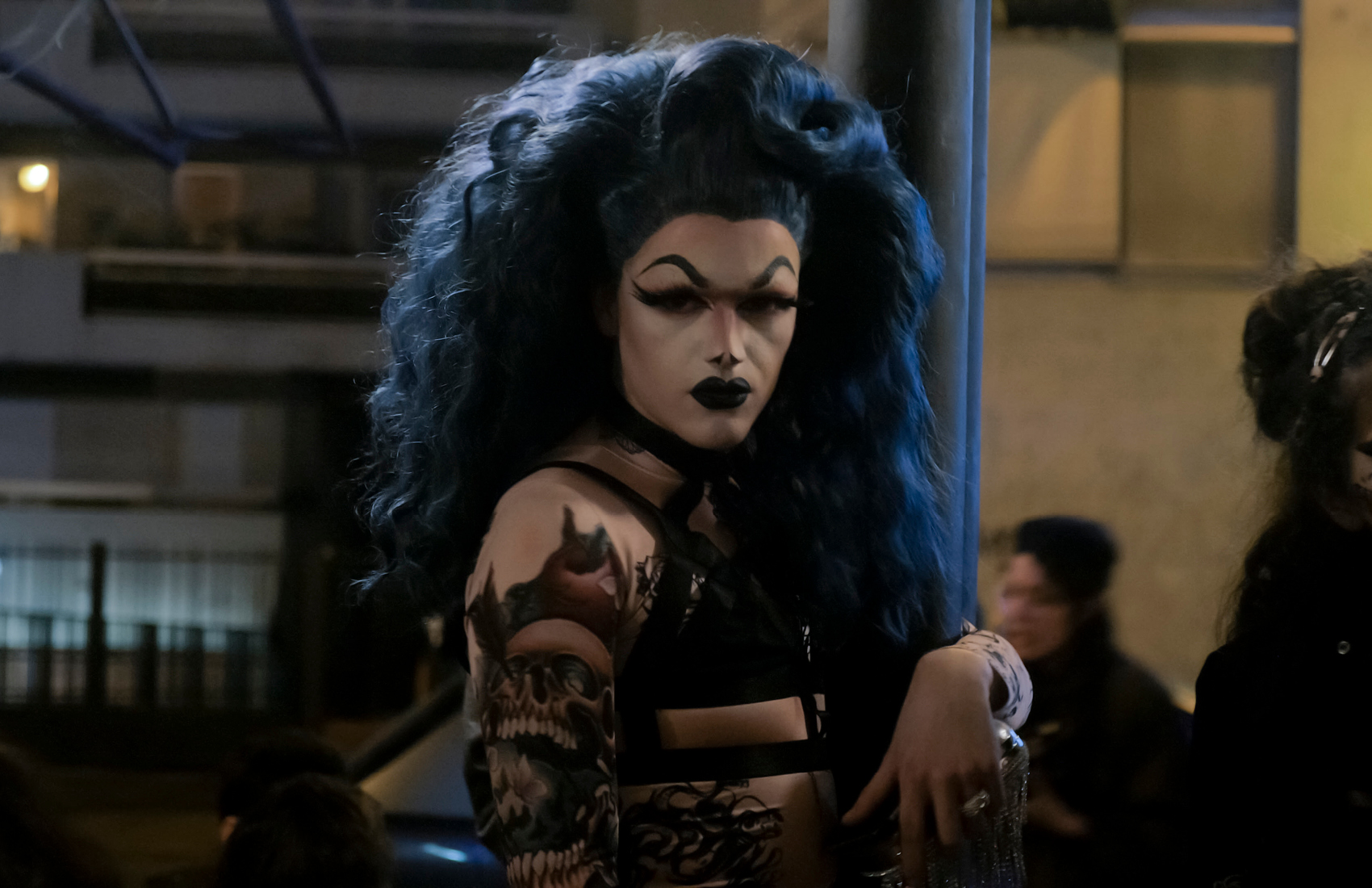
This Schön! online exclusive has been produced by
video. Ines Ferhat
artists. Sasha Kills, Morphine Blaze, Nude Darling, Eden Darling, Veida Shimmy, Alice Psycho, Le Filip, Baba, Loulou l’Orpheline, Tiggy Thorn + Trashenda


Schön! Magazine is now available in print at Amazon,
as ebook download + on any mobile device












